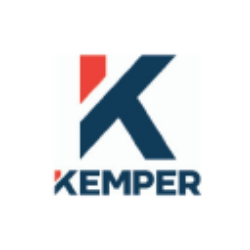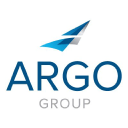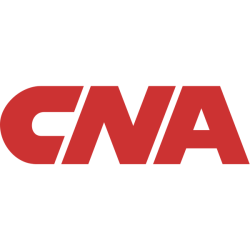PLMR

Palomar Holdings, Inc.
PLMR
(2.5)106,17 USD
7.31% ROA
19.65% ROE
24.97x PER
2.529.613.959,00 USD
0% DER
0% Yield
21.54% NPM
Palomar Holdings, Inc. Stock Analysis
Palomar Holdings, Inc. Fundamental Analysis
Fundamental analysis in stock investing is like studying the foundation of a house before buying it. It involves looking at a company's financial health, like its earnings, assets, and debts, to determine if it's a good investment based on its fundamental strength and potential for growth.
| # | Analysis | Rating |
|---|---|---|
| 1 |
DER
The stock has a low debt to equity ratio (17%), which means it has a small amount of debt compared to the ownership it holds |
|
| 2 |
Revenue Growth
With a track record of consistent revenue growth in the past five years, this company presents a compelling opportunity. |
|
| 3 |
Assets Growth
This company's revenue has experienced steady growth over the last five years, indicating a reliable and prosperous financial trajectory. |
|
| 4 |
ROE
ROE in an average range (14.75%) suggests satisfactory profitability and decent utilization of shareholders' equity. |
|
| 5 |
ROA
The stock's ROA (3.78%) indicates that it's doing well in making money from the things it owns. This makes it a good option to invest and make consistent profits. |
|
| 6 |
Net Profit Growth
This company's net profit has consistently grown over the past three years, showcasing a positive financial trend and making it an appealing investment opportunity. |
|
| 7 |
Buffet Intrinsic Value
The company's stock shows potential as it is undervalued (922) according to Warren Buffett's formula, indicating that its intrinsic value exceeds the market price. |
|
| 8 |
PBV
The stock's high Price-to-Book Value (P/BV) ratio (3.57x) suggests it's overvalued, potentially making it an expensive investment. |
|
| 9 |
Graham Number
The Graham number calculation reveals that this company's stock price is potentially inflated, implying that it may not be a desirable investment option. |
|
| 10 |
Dividend Growth
Investors should note the company's stagnant dividend growth over the past three years, indicating limited profitability and potentially diminishing returns. |
|
| 11 |
Dividend
Investors should be cautious as the company hasn't distributed dividends in the last three years, possibly indicating financial challenges. |
Palomar Holdings, Inc. Technical Analysis
Technical analysis in stock investing is like reading the patterns on a weather map to predict future weather conditions. It involves studying past stock price movements and trading volumes to make predictions about where a stock's price might go next, without necessarily looking at the company's financial health.
| # | Analysis | Recommendation |
|---|---|---|
| 1 | Awesome Oscillator | Buy |
| 2 | MACD | Sell |
| 3 | RSI | Hold |
| 4 | Stoch RSI | Sell |
Palomar Holdings, Inc. Price Chart
Financial Statements
Financial statements are like report cards for companies. They show how much money a company makes (income statement), what it owns and owes (balance sheet), and where it spends its money (cash flow statement), helping stock investors understand if a company is healthy and worth investing in.
Income Statements
An income statement for a company is like a scoreboard for its profits and losses. It shows how much money the company made (revenue) and how much it spent to make that money (expenses), helping stock investors see if a company is making a profit or not.
Revenue in stock investing is the total amount of money a company earns from its sales, and it's a key factor that investors consider to assess a company's financial performance and growth potential.
| Year | Revenue | Growth |
|---|---|---|
| 2016 | 42.696.000 | |
| 2017 | 59.466.000 | 28.2% |
| 2018 | 72.971.000 | 18.51% |
| 2019 | 113.296.000 | 35.59% |
| 2020 | 168.463.000 | 32.75% |
| 2021 | 247.791.000 | 32.01% |
| 2022 | 327.086.000 | 24.24% |
| 2023 | 363.740.000 | 10.08% |
| 2023 | 375.926.000 | 3.24% |
| 2024 | 525.583.996 | 28.47% |
Research and Development Expenses are the costs a company incurs to create and improve its products or services, which can be important for investors to evaluate a company's innovation and potential for future growth.
| Year | Research and Development Expenses | Growth |
|---|---|---|
| 2016 | 0 | |
| 2017 | 0 | 0% |
| 2018 | 0 | 0% |
| 2019 | 0 | 0% |
| 2020 | 0 | 0% |
| 2021 | 0 | 0% |
| 2022 | 0 | 0% |
| 2023 | 0 | 0% |
| 2023 | 0 | 0% |
| 2024 | 0 | 0% |
General and Administrative Expenses are the costs a company incurs to run its day-to-day operations, such as office rent, salaries, and utilities, which investors consider to understand a company's overall efficiency and management effectiveness.
| Year | General and Administrative Expenses | Growth |
|---|---|---|
| 2016 | 0 | |
| 2017 | 0 | 0% |
| 2018 | 0 | 0% |
| 2019 | 0 | 0% |
| 2020 | 0 | 0% |
| 2021 | 0 | 0% |
| 2022 | 0 | 0% |
| 2023 | 0 | 0% |
| 2023 | 0 | 0% |
| 2024 | 0 | 0% |
EBITDA stands for Earnings Before Interest, Taxes, Depreciation, and Amortization. It is a measure that helps stock investors analyze a company's profitability by looking at its earnings without considering certain expenses. This helps to get a clearer picture of the company's financial performance and its ability to generate cash flow.
| Year | EBITDA | Growth |
|---|---|---|
| 2016 | 7.999.000 | |
| 2017 | 6.833.000 | -17.06% |
| 2018 | 20.728.000 | 67.03% |
| 2019 | 19.361.000 | -7.06% |
| 2020 | 7.559.000 | -156.13% |
| 2021 | 60.682.000 | 87.54% |
| 2022 | 72.539.000 | 16.35% |
| 2023 | 98.140.000 | 26.09% |
| 2023 | 111.920.000 | 12.31% |
| 2024 | -900.000 | 12535.56% |
Gross profit is the money a company makes from selling its products or services after subtracting the cost of producing or providing them, and it is an important measure for investors to understand a company's profitability.
| Year | Gross Profit | Growth |
|---|---|---|
| 2016 | 42.696.000 | |
| 2017 | 59.466.000 | 28.2% |
| 2018 | 72.971.000 | 18.51% |
| 2019 | 113.296.000 | 35.59% |
| 2020 | 168.463.000 | 32.75% |
| 2021 | 247.791.000 | 32.01% |
| 2022 | 327.086.000 | 24.24% |
| 2023 | 363.740.000 | 10.08% |
| 2023 | 375.926.000 | 3.24% |
| 2024 | 524.275.996 | 28.3% |
Net income in stock investing is like the money a company actually gets to keep as profit after paying all its bills, and it's an important measure to understand how well a company is doing financially.
| Year | Net Profit | Growth |
|---|---|---|
| 2016 | 6.614.000 | |
| 2017 | 3.783.000 | -74.83% |
| 2018 | 18.219.000 | 79.24% |
| 2019 | 10.621.000 | -71.54% |
| 2020 | 6.257.000 | -69.75% |
| 2021 | 45.847.000 | 86.35% |
| 2022 | 52.170.000 | 12.12% |
| 2023 | 73.728.000 | 29.24% |
| 2023 | 79.201.000 | 6.91% |
| 2024 | 102.916.000 | 23.04% |
EPS, or earnings per share, is a measure that shows how much profit a company has earned for each outstanding share of its stock, and it is important for stock investors as it helps understand the profitability of a company and compare it with other companies in the market.
| Year | Earning per Share (EPS) | Growth |
|---|---|---|
| 2016 | 0 | |
| 2017 | 0 | 0% |
| 2018 | 1 | 0% |
| 2019 | 0 | 0% |
| 2020 | 0 | 0% |
| 2021 | 2 | 100% |
| 2022 | 2 | 50% |
| 2023 | 3 | 33.33% |
| 2023 | 3 | 0% |
| 2024 | 4 | 25% |
Cashflow Statements
Cashflow statements show the movement of money in and out of a company, helping stock investors understand how much money a company makes and spends. By examining cashflow statements, investors can assess if a company is generating enough cash to pay its bills, invest in growth, and provide returns to stockholders.
Free cash flow is the leftover cash that a company generates after covering its operating expenses and capital expenditures, which is important for stock investors as it shows how much money a company has available to invest in growth, pay dividends, or reduce debt.
| Year | Free Cashflow | Growth |
|---|---|---|
| 2016 | 14.927.000 | |
| 2017 | 20.180.000 | 26.03% |
| 2018 | 22.476.000 | 10.22% |
| 2019 | 38.774.000 | 42.03% |
| 2020 | 49.477.000 | 21.63% |
| 2021 | 82.960.000 | 40.36% |
| 2022 | 163.647.000 | 49.31% |
| 2023 | 109.347.000 | -49.66% |
| 2023 | 81.300.000 | -34.5% |
| 2024 | 53.584.000 | -51.72% |
Operating cash flow represents the cash generated or consumed by a company's day-to-day operations, excluding external investing or financing activities, and is crucial for stock investors as it shows how much cash a company is generating from its core business operations.
| Year | Operating Cashflow | Growth |
|---|---|---|
| 2016 | 15.825.000 | |
| 2017 | 20.248.000 | 21.84% |
| 2018 | 22.808.000 | 11.22% |
| 2019 | 41.700.000 | 45.3% |
| 2020 | 53.551.000 | 22.13% |
| 2021 | 87.814.000 | 39.02% |
| 2022 | 169.583.000 | 48.22% |
| 2023 | 116.106.000 | -46.06% |
| 2023 | 81.300.000 | -42.81% |
| 2024 | 55.127.000 | -47.48% |
Capex, short for capital expenditures, refers to the money a company spends on acquiring or upgrading tangible assets like buildings, equipment, or technology, which is important for stock investors as it indicates how much a company is investing in its infrastructure to support future growth and profitability.
| Year | Capital Expenditure | Growth |
|---|---|---|
| 2016 | 898.000 | |
| 2017 | 68.000 | -1220.59% |
| 2018 | 332.000 | 79.52% |
| 2019 | 2.926.000 | 88.65% |
| 2020 | 4.074.000 | 28.18% |
| 2021 | 4.854.000 | 16.07% |
| 2022 | 5.936.000 | 18.23% |
| 2023 | 6.759.000 | 12.18% |
| 2023 | 0 | 0% |
| 2024 | 1.543.000 | 100% |
Balance Sheet
Balance sheets provide a snapshot of a company's financial health and its assets (such as cash, inventory, and property) and liabilities (like debts and obligations) at a specific point in time. For stock investors, balance sheets help assess the company's overall worth and evaluate its ability to meet financial obligations and support future growth.
Equity refers to the ownership interest or stake that shareholders have in a company, representing their claim on its assets and earnings after all debts and liabilities are paid.
| Year | Equity | Growth |
|---|---|---|
| 2016 | 73.109.000 | |
| 2017 | 78.414.000 | 6.77% |
| 2018 | 91.173.000 | 13.99% |
| 2019 | 218.556.000 | 58.28% |
| 2020 | 363.713.000 | 39.91% |
| 2021 | 394.169.000 | 7.73% |
| 2022 | 384.754.000 | -2.45% |
| 2023 | 471.252.000 | 18.35% |
| 2023 | 421.334.000 | -11.85% |
| 2024 | 532.606.000 | 20.89% |
Assets represent the valuable resources that a company owns, such as cash, inventory, property, and equipment, and understanding a company's assets helps investors assess its value and potential for generating future profits.
| Year | Assets | Growth |
|---|---|---|
| 2016 | 145.132.000 | |
| 2017 | 188.355.000 | 22.95% |
| 2018 | 231.134.000 | 18.51% |
| 2019 | 395.462.000 | 41.55% |
| 2020 | 729.092.000 | 45.76% |
| 2021 | 925.734.000 | 21.24% |
| 2022 | 1.298.818.000 | 28.72% |
| 2023 | 1.165.420.000 | -11.45% |
| 2023 | 1.626.334.000 | 28.34% |
| 2024 | 1.331.423.000 | -22.15% |
Liabilities refer to the financial obligations or debts that a company owes to creditors or external parties, and understanding a company's liabilities is important for investors as it helps assess the company's financial risk and ability to meet its obligations.
| Year | Liabilities | Growth |
|---|---|---|
| 2016 | 16.973.000 | |
| 2017 | 109.941.000 | 84.56% |
| 2018 | 139.961.000 | 21.45% |
| 2019 | 176.906.000 | 20.88% |
| 2020 | 365.379.000 | 51.58% |
| 2021 | 531.565.000 | 31.26% |
| 2022 | 914.064.000 | 41.85% |
| 2023 | 694.168.000 | -31.68% |
| 2023 | 296.157.000 | -134.39% |
| 2024 | 798.817.000 | 62.93% |
Palomar Holdings, Inc. Financial Ratio (TTM)
Valuation Metrics
- Revenue per Share
- 17.89
- Net Income per Share
- 3.87
- Price to Earning Ratio
- 24.97x
- Price To Sales Ratio
- 5.67x
- POCF Ratio
- 12.55
- PFCF Ratio
- 13.6
- Price to Book Ratio
- 4.52
- EV to Sales
- 5.56
- EV Over EBITDA
- 21.76
- EV to Operating CashFlow
- 12.94
- EV to FreeCashFlow
- 13.34
- Earnings Yield
- 0.04
- FreeCashFlow Yield
- 0.07
- Market Cap
- 2,53 Bil.
- Enterprise Value
- 2,48 Bil.
- Graham Number
- 43.09
- Graham NetNet
- -27.93
Income Statement Metrics
- Net Income per Share
- 3.87
- Income Quality
- 1.2
- ROE
- 0.2
- Return On Assets
- 0.05
- Return On Capital Employed
- 0.07
- Net Income per EBT
- 0.78
- EBT Per Ebit
- 0.88
- Ebit per Revenue
- 0.32
- Effective Tax Rate
- 0.22
Margins
- Sales, General, & Administrative to Revenue
- 0
- Research & Developement to Revenue
- 0
- Stock Based Compensation to Revenue
- 0.03
- Gross Profit Margin
- 1
- Operating Profit Margin
- 0.32
- Pretax Profit Margin
- 0.28
- Net Profit Margin
- 0.22
Dividends
- Dividend Yield
- 0
- Dividend Yield %
- 0
- Payout Ratio
- 0
- Dividend Per Share
- 0
Operating Metrics
- Operating Cashflow per Share
- 7.69
- Free CashFlow per Share
- 7.46
- Capex to Operating CashFlow
- 0.03
- Capex to Revenue
- 0.01
- Capex to Depreciation
- 1.32
- Return on Invested Capital
- 0.21
- Return on Tangible Assets
- 0.07
- Days Sales Outstanding
- 603.96
- Days Payables Outstanding
- 316148.04
- Days of Inventory on Hand
- -1260885.24
- Receivables Turnover
- 0.6
- Payables Turnover
- 0
- Inventory Turnover
- -0
- Capex per Share
- 0.23
Balance Sheet
- Cash per Share
- 4,53
- Book Value per Share
- 21,35
- Tangible Book Value per Share
- 20.89
- Shareholders Equity per Share
- 21.35
- Interest Debt per Share
- 0.11
- Debt to Equity
- 0
- Debt to Assets
- 0
- Net Debt to EBITDA
- -0.42
- Current Ratio
- 1.5
- Tangible Asset Value
- 0,52 Bil.
- Net Current Asset Value
- -0,32 Bil.
- Invested Capital
- 171414000
- Working Capital
- 0,16 Bil.
- Intangibles to Total Assets
- 0.01
- Average Receivables
- 0,69 Bil.
- Average Payables
- 0,27 Bil.
- Average Inventory
- -1082385500
- Debt to Market Cap
- 0
Dividends
Dividends in stock investing are like rewards that companies give to their shareholders. They are a portion of the company's profits distributed to investors, typically in the form of cash payments, as a way for them to share in the company's success.
| Year | Dividends | Growth |
|---|
Palomar Holdings, Inc. Profile
About Palomar Holdings, Inc.
Palomar Holdings, Inc., an insurance holding company, provides specialty property insurance to residential and commercial customers. The company offers personal and commercial specialty property insurance products, including residential and commercial earthquake, commercial all risk, specialty homeowners, inland marine, Hawaii hurricane, and residential flood, as well as other products, such as assumed reinsurance, commercial flood, real estate error and omission, and real estate investor products. It markets and distributes its products through retail agents, wholesale brokers, program administrators, and carrier partnerships. The company was formerly known as GC Palomar Holdings. Palomar Holdings, Inc. was incorporated in 2013 and is headquartered in La Jolla, California.
- CEO
- Mr. D. McDonald Armstrong
- Employee
- 213
- Address
-
7979 Ivanhoe Avenue
La Jolla, 92037
Palomar Holdings, Inc. Executives & BODs
| # | Name | Age |
|---|---|---|
| 1 |
Ms. Angela Leann Grant Chief Legal Officer & Corporate Secretary |
70 |
| 2 |
Mr. Toshio Christopher Uchida CPA Chief Financial Officer |
70 |
| 3 |
Mr. John MacDonald Senior Vice President of Marketing |
70 |
| 4 |
Mr. Jon Marcus Christianson President |
70 |
| 5 |
Mr. Rodolphe Herve Chief Operating Officer |
70 |
| 6 |
Ms. Elizabeth Whitaker Seitz CPA EVice President of Treasury & Financial Operations and Chief Accounting Officer |
70 |
| 7 |
Mr. James Long Chief Technology Officer |
70 |
| 8 |
Mr. Jonathan Blake Knutzen Chief Risk Officer |
70 |
| 9 |
Mr. Kyle Morgan Executive Vice President of Corporate & Business Development |
70 |
| 10 |
Mr. D. McDonald Armstrong Founder, Chief Executive Officer & Chairman of the Board |
70 |










